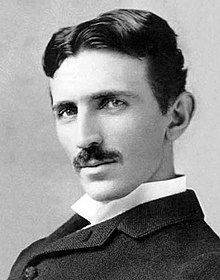Many thousands of people are celebrating this week, from December twenty-second to the twenty-ninth, the New Group of World Servers. What is the New Group of World Servers?
This group is not a political group, nor is it a religious group. It does not belong to any religion, any party. It does not even have a name. The people who are in the New Group of World Servers do not even know that is their name. It is a very interesting group.
How are we going to know these people? These people have no dogma, no doctrine, and they do not belong to any church, any party. They do not put labels on their forehead and say, “I am this, I am that.” We can know them by one thing: “By the fruits of them you will know.” What are their fruits? Their fruits are love, light, and beauty. If a man, or a woman, is working for light, to increase the light in the world, the light in his consciousness, in his family, in his group, in his nation, and in humanity, he is a member of the New Group of World Servers. When he is trying to increase the light with light, love, and beauty, these three things, he is a member of the New Group of World Servers. You can know them.
...the New Group of World Servers takes its inspiration from the Higher Worlds, from the Hierarchy. Their power is increasing from the Renaissance until today, thousand, ten thousand times. In every department of human nature, especially now in the young people, you can find a strong drive for life, a strong drive for global love and right relationships, a strong drive toward beauty. We can see it everywhere increasing, and eventually the balance will be shifted, and the New Group of World Servers will be able to bring to life greater light, greater love, and greater beauty.
We are told that the members of the New Group of World Servers know that, in every department of human endeavor, even in politics, in religion, in the darkest churches or religious organizations, which are so narrow, they are living in a little candlelight. They cannot see beyond that. Yet the New Group of World Servers is increasing. The increase of the New Group of World Servers is the hope of humanity.
____________________________________________
The Teachings of Christ, Vol. 2, pp. 181-183.
***The Teachings of Christ is a series of four volumes on the deeper meaning of the work of Christ, including birth and Christmas, Resurrection, Parables and stories, and how to use the Teachings of Christ for transforming our life.
***Torkom’s Legacy continues to thrive through your generous donations. Donate online here...
Please read Gita Saraydarian's End of the Year letter to see the great strides TSG Foundation has made in 2012. Thank you.
This group is not a political group, nor is it a religious group. It does not belong to any religion, any party. It does not even have a name. The people who are in the New Group of World Servers do not even know that is their name. It is a very interesting group.
How are we going to know these people? These people have no dogma, no doctrine, and they do not belong to any church, any party. They do not put labels on their forehead and say, “I am this, I am that.” We can know them by one thing: “By the fruits of them you will know.” What are their fruits? Their fruits are love, light, and beauty. If a man, or a woman, is working for light, to increase the light in the world, the light in his consciousness, in his family, in his group, in his nation, and in humanity, he is a member of the New Group of World Servers. When he is trying to increase the light with light, love, and beauty, these three things, he is a member of the New Group of World Servers. You can know them.
...the New Group of World Servers takes its inspiration from the Higher Worlds, from the Hierarchy. Their power is increasing from the Renaissance until today, thousand, ten thousand times. In every department of human nature, especially now in the young people, you can find a strong drive for life, a strong drive for global love and right relationships, a strong drive toward beauty. We can see it everywhere increasing, and eventually the balance will be shifted, and the New Group of World Servers will be able to bring to life greater light, greater love, and greater beauty.
We are told that the members of the New Group of World Servers know that, in every department of human endeavor, even in politics, in religion, in the darkest churches or religious organizations, which are so narrow, they are living in a little candlelight. They cannot see beyond that. Yet the New Group of World Servers is increasing. The increase of the New Group of World Servers is the hope of humanity.
____________________________________________
The Teachings of Christ, Vol. 2, pp. 181-183.
***The Teachings of Christ is a series of four volumes on the deeper meaning of the work of Christ, including birth and Christmas, Resurrection, Parables and stories, and how to use the Teachings of Christ for transforming our life.
***Torkom’s Legacy continues to thrive through your generous donations. Donate online here...
Please read Gita Saraydarian's End of the Year letter to see the great strides TSG Foundation has made in 2012. Thank you.














